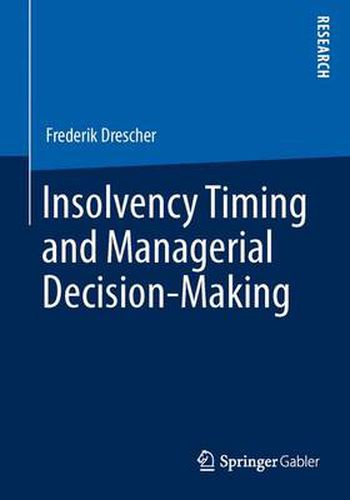Readings Newsletter
Become a Readings Member to make your shopping experience even easier.
Sign in or sign up for free!
You’re not far away from qualifying for FREE standard shipping within Australia
You’ve qualified for FREE standard shipping within Australia
The cart is loading…






This title is printed to order. This book may have been self-published. If so, we cannot guarantee the quality of the content. In the main most books will have gone through the editing process however some may not. We therefore suggest that you be aware of this before ordering this book. If in doubt check either the author or publisher’s details as we are unable to accept any returns unless they are faulty. Please contact us if you have any questions.
Frederik Drescher addresses the timing of non-mandatory insolvency filings based on threatening illiquidity ( 18 InsO) with the aim of a company’s restructuring as an agency problem between owners and management. The hypothesis of a tendency towards delayed insolvency filings, which was developed using a decision model, is experimentally confirmed. Moreover, the author analyzes different incentive instruments potentially leading to earlier insolvency filings.
$9.00 standard shipping within Australia
FREE standard shipping within Australia for orders over $100.00
Express & International shipping calculated at checkout
Stock availability can be subject to change without notice. We recommend calling the shop or contacting our online team to check availability of low stock items. Please see our Shopping Online page for more details.
This title is printed to order. This book may have been self-published. If so, we cannot guarantee the quality of the content. In the main most books will have gone through the editing process however some may not. We therefore suggest that you be aware of this before ordering this book. If in doubt check either the author or publisher’s details as we are unable to accept any returns unless they are faulty. Please contact us if you have any questions.
Frederik Drescher addresses the timing of non-mandatory insolvency filings based on threatening illiquidity ( 18 InsO) with the aim of a company’s restructuring as an agency problem between owners and management. The hypothesis of a tendency towards delayed insolvency filings, which was developed using a decision model, is experimentally confirmed. Moreover, the author analyzes different incentive instruments potentially leading to earlier insolvency filings.